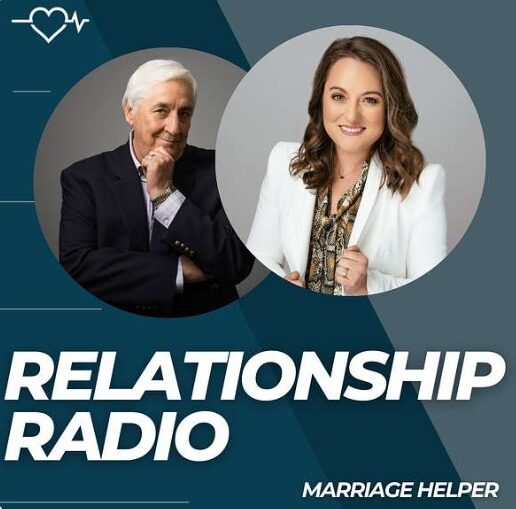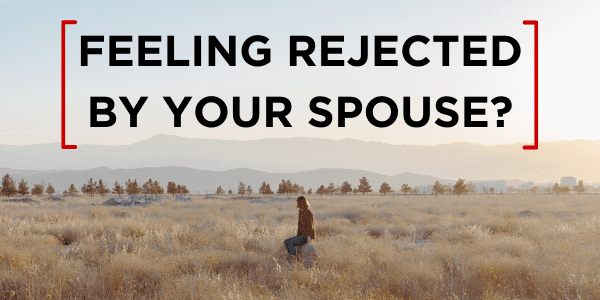She interrupted my talk to tell me that I should say the word differently to make its meaning clear. Instead of intimacy, I should say it into-me-see.
She had a great point.
The Dictionary defines intimacy as “a close, familiar, and usually affectionate or loving personal relationship with another person or group.” In the social sciences we think of it as closeness, openness, vulnerability, and transparency. Pronouncing it into-me-see does a great job of giving the meaning in the way the word sounds. It is letting another person look deep inside you.
The difficulty is that most of us don’t have a person, much less a group of people, with whom we can be so open. We learned early in life that people tend to accept us when we meet their criteria for acceptance, and we learned to paint pictures of how they want us to be rather than showing who we really are.
Yet we crave being known as we truly are and loved nevertheless. No criteria. No pretending. Just love me as I am.
A couple weeks ago a friend was interviewing me before an audience several thousand teenagers. In the course of our conversation, I tried to make it clear that we do strange – sometimes very bad – things in our effort to feel that someone loves us as we are. Without realizing it, I referred to the title of an old hymn that I haven’t heard for decades. I said to my friend, “I want someone to love me just as I am.”
“Just as I am,” he mulled. He quickly got the symbolism. Great revivalists in the last century used that hymn at the end of their sermons to draw people down aisles into public repentance. Maybe they understood its importance. Maybe it was just an easy hymn to sing. Either way, the underlying theme was, and is, powerful.
I want to be accepted just as I am. That’s the core of love. I don’t feel loved when someone wants me to be different in some way to be accepted. I feel loved when I realize that another person can and does love me without requiring me to be any different than I actually am deep inside. Some call it unconditional love. Others call it true love. Most don’t care what it is called: They want just want it.
It is a basic desire of every human. When it happens, tremendous bonds of affection, trust, and loyalty develop. Unfortunately, that doesn’t happen in many relationships.
Some grow up in homes where they feel they have to meet certain criteria to be accepted by a parent. Others enter romantic relationships with people that constantly want to control or change them, only feeling loved when the partner is happy with what they are being or doing at a particular moment. Yet others feel that their friends accept them and want them around as long as they are giving their friends what they want or need.
It seems to be rare for a person to be in a relationship where he or she feels that the other accepts or loves without requiring any action, belief, mindset, or anything else…where love exists for the person when he is good, when she is bad, or when vacillating between the two.
After the interview by my friend, people lined up to tell me that no one loves them as they are. A teenager told me his friends only want what he can do for them and no one seems to care that he hurts, and that he feels lonely. As long as he does what the group wants, he’s accepted. Rather than feeling a close bond with them, he felt rejected and alone. A wife told me a similar story about her relationship with her husband. A husband’s story was eerily similar, though he had no connection to the woman who had just talked with me.
As each passed in turn, I knew a three things were alike for each of them:
- They were lonely.
- They wanted someone to love them without making them pretend to be someone or something else. They craved another person to see into them and accept and care about the person they are, even when flawed or imperfect.
- They each were vulnerable to abandoning their values if they could feel loved and accepted as they are.
Could a predator person prey on them? Yes. However, they were much more likely to find another hurting person and engage in a relationship with him or her that could lead them both to personal misery or destruction.
When lonely hurting people find each other, it can be a wonderful thing if they develop a relationship based on mutual trust, openness, and understanding. It can be a tragic thing if they come to feel that they are “two against the world” and no one else could ever understand or love them the way they do each other.
Allow me to illustrate. At Marriage Helper we work a great deal with marriages in crisis. Quite a few of those involve infidelity. Sometimes the infidelity is primarily an affair of opportunity; being in the wrong place at the right time and things get out of hand. As bad as that is – and it is very bad – those are usually the less troublesome to overcome. Those that are far more difficult involve two people, feeling lonely and craving love, who come into contact with each other, but one or both of them are married to someone else.
Can you imagine how difficult it is to convince a person to leave a relationship where they feel accepted and loved for who they are, and go back into a marital relationship where they feel the other person controls or coerces them to be as that spouse wants them to be?
It can only be done if there is a restructuring of the existing marriage to a relationship of unconditional love. That, of course, is very hard to accomplish when the unfaithful mate compares the love and acceptance he or she feels from the lover to the experiences of feeling unloved by their spouse. If the spouse being abandoned isn’t willing to see his or her part in what happened, and isn’t open to changing the relationship to one much healthier than they had, it’s relatively impossible. We have an amazing success record of saving three out of four troubled marriages, even when this situation exists, but only occasionally can we help when the abandoned spouse refuses to see what must be done, refuses to take any responsibility for what has occurred, or mostly just wants to hurt the unfaithful spouse.
That is not to say that adultery is justified, or that it is acceptable to stray when one feels more love from a paramour than from a spouse. It is to say that a marriage in crisis because a spouse feels loved by another usually involves a serious problem in the marriage. Whatever the symptoms, the underlying cause probably relates to at least one spouse, if not both, feeling a lack of love because they are afraid to let the other person see into them. Or they did let the other person see into them but were rejected, castigated, or made to pretend to be someone else.
Intimacy is the answer to a great many problems in relationships. However, it will never occur until a person feels safe enough to show who he or she is, and the other person in the relationship can accept them as they are.
Without that, all relationships are temporary. They exist until a person finds acceptance and love from someone else.
If your marriage is in danger of separation or divorce, call us at (866) 903-0990 to speak with someone or use the form below to request more information about our Marriage Helper workshop for troubled marriages. Our success rate over the last decade is saving three out of four marriages, even when adultery, porn, anger, or other things have deeply hurt the relationship! (If you’re thinking your spouse would never come, contact us by phone or the form below and we’ll tell you what others who felt the same way did to get their spouses there.) We will keep everything you tell us completely confidential. Our motivation is to help you determine if this workshop is right for your particular situation. We also offer solutions for couples who can’t attend the workshop.
WE WANT TO HELP
At Marriage Helper, we’ve walked alongside thousands of couples and spent decades researching what really works to strengthen marriages. Our goal is to provide you with practical, research-backed guidance—like the free information you’ve found on this page—because we genuinely care about helping marriages thrive. If you’re ready to go deeper, our workshops, membership, and one-on-one coaching offer even more tools, insights, and personalized support to help you navigate your unique journey and create lasting change in your relationship.
Our intensive Marriage Helper Workshop has a remarkable 70% success rate in saving marriages, even if your spouse is reluctant or unwilling to participate. And here’s what’s even more encouraging: 99% of participants recommend our program to others, regardless of their ultimate outcome.
Learn more about:




